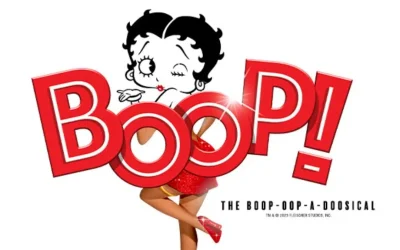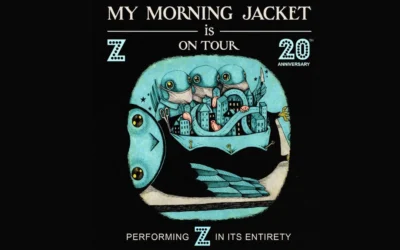By Richard Kastelein
Dutch legislative update – Netherlands Socialist Party Member of Parliament Arda Gerkens – has been working on anti-Secondary Ticket legislation since 2007 – and is a member of the SP Executive Committee and heads its ICT and Pop music portfolios.
The central thesis of the bill is that the resale of tickets at a profit must simply be prohibited. In the case of someone not being able to attend they would be allowed to markup the ticket a maximum of ten percent in the market. In this scenario, ten percent would not even cover the postal charges of sending a single ticket in the Netherlands in most cases as its six euro to ship registered post anywhere in the Netherlands.
She has also proposed the possibility of a special government Web site which could be set up to allow individuals to resell their single tickets in case of illness – in order to combat ticket resale in online marketplaces.
“I think we in this country lack equal opportunities for people.” she has stated in the Dutch Press. “Financial constraints may never be a reason for a lack of fulfilment.”
“Sport and Culture should be for everyone within reach, and you should not be able to speculate.”
In 2007, Concert Organizer Mojo (now Live Nation) welcomed the legislation. Live Nation is also now a participant in the secondary ticket market with their recent partnership with viagogo.
Earlier this year, the proposed legislation was sent by Gerkens and returned from the Dutch Consumer Authority who did not feel the bill would be able to be enforced. Reasons given the labour intensive scale of monitoring pricing, particularly in the new method of the ‘dynamic pricing of tickets’, using viagogo and its Michael Jackson tickets as an example. According to them, monitoring the compliance of the proposed article per individual ticket – what the difference is between the original price and the selling price would be a logistical nightmare.
The ability for Internet traders to easily shift to other countries and continue the same practices from across the border, and focus on Dutch consumers can also easily continue. Which, according to them, poses a serious obstacle to an effective monitoring and enforcement practice. They can’t even be sure under current EU law, which allows for some enforcement of cross border actions by national consumer authorities, could even allow for halting the practice for foreign companies outside the Netherlands who participate in the Secondary Industry.
Industry buzz has the legislation doomed by some – with the current economic crisis not jiving well with possibly driving hundreds of jobs out of the country. But others are worried about the current political makeup of the parliament and the shifting alliances in the minority government.
European Primary and Secondary Markets – Current problems between primary and secondary market markets vary in each country. For instance in Holland, Live Nation, recently known as Mojo, has always had a combative relationship with secondary market brokers and often blocks tickets. They went as far as to cheer-lead the anti-secondary ticketing industry officially proposed by the Dutch Socialist Party in 2008.
Ticketmaster, generally in Europe, has not participated in much antagonism towards the secondary market, but then again, they are quite active in the secondary market itself with their own acquisitions of GetMeIn and TicketsNow. They can hardly go on a blocking spree such as other parties have done – as the hypocrisy would be a little too obvious.
Ticket blocking in Europe – The KNVB (Dutch Football Association) have blocked tickets in the secondary market – recently, for a match between Scotland and Holland. The football body simply and indiscriminately blocked bulk purchases of over ten tickets. This was strange because they themselves don’t have a limit on how many one can purchase. The blocking affected secondary ticket companies both in the Netherlands and Scotland.
And it was not only secondary ticket industry players that were affected in the KNVB debacle… one corporate hospitality company in the Netherlands offering full package corporate events which included tickets to the Scotland-Netherlands match also got caught in the maelstrom and found themselves with a slew of very unhappy clients with booked hotels, catered food and no tickets to the event because they were blocked. They got caught in the storm intended to ‘eradicate’ what the Dutch media calls, the ‘Black Market’.
This blanket block by the KNVB can create all kinds of scenarios for people who have reason to buy tickets in bulk. Imagine a minor football team renting a bus and the trainer/coach went ahead and bought 40 tickets for the players and parents.
They would have been blocked.
Action was taken to the courts by Worldticketshop to unblock the tickets just prior to the event, but the KNVB won the case, based on the KNVB terms and conditions (does not allow commercial reselling of the tickets) – which were declared valid because the KNVB did a media campaign prior and announced the blockage.
Richard Kastelein is a Netherlands-based Canadian business analyst and executive for Worldticketshop.com in the Netherlands. An adept team player – he’s been a publisher, editor, journalist, photographer, marketing director, web developer and graphic designer and has more than 20 years experience in the development and operation of newspapers, magazines, web media and PR-marketing of multinational, multimillion dollar companies in international settings. Kastelein is also the Managing Director of Expathos Media in the Netherlands and sits on the boards of several startups in Tel Aviv, London and Brussels.
He is speaking at Ticket Summit Las Vegas, July 15-17 at Venetian Resort Hotel Casino.




